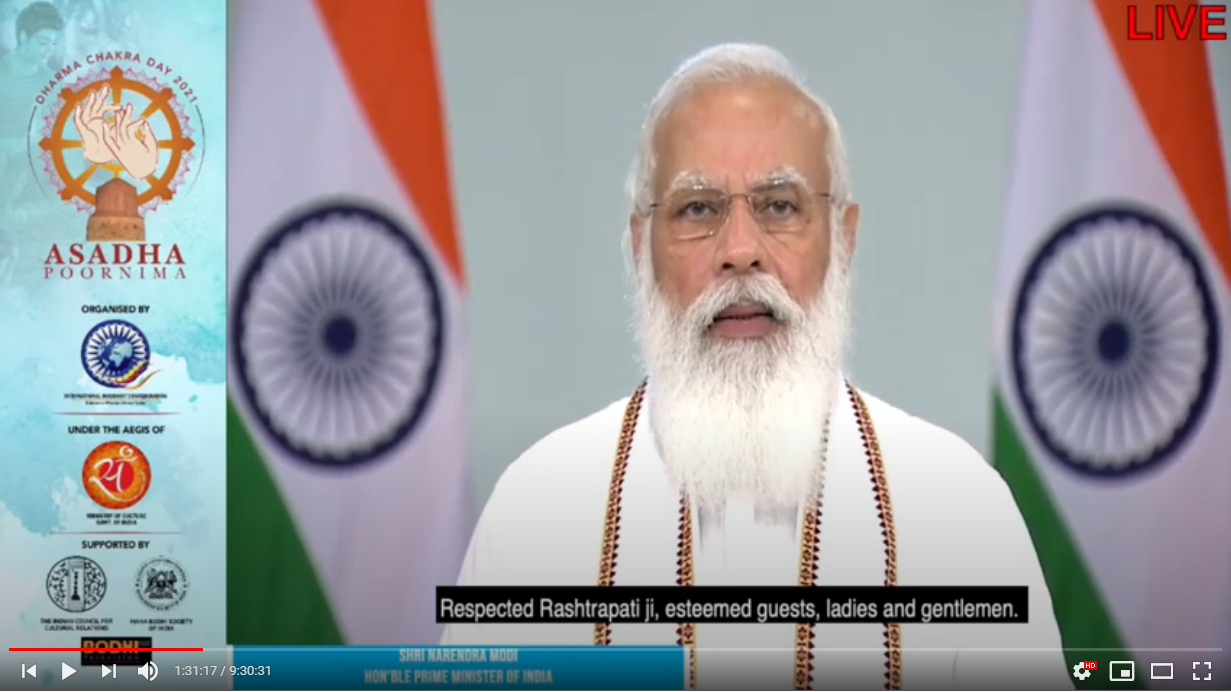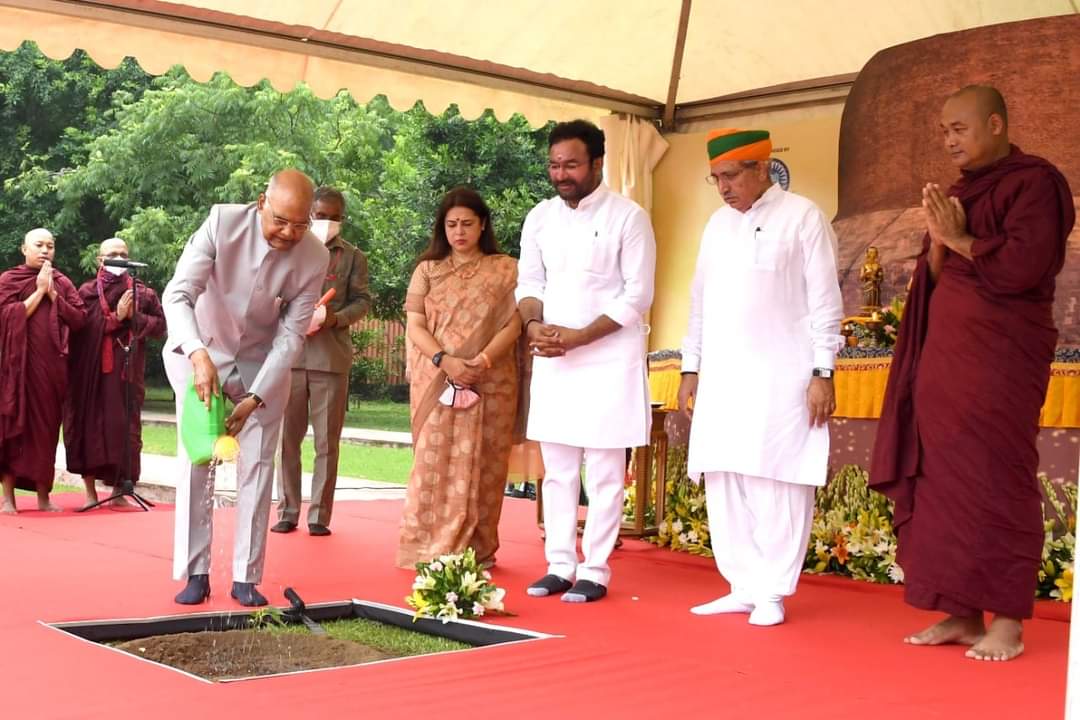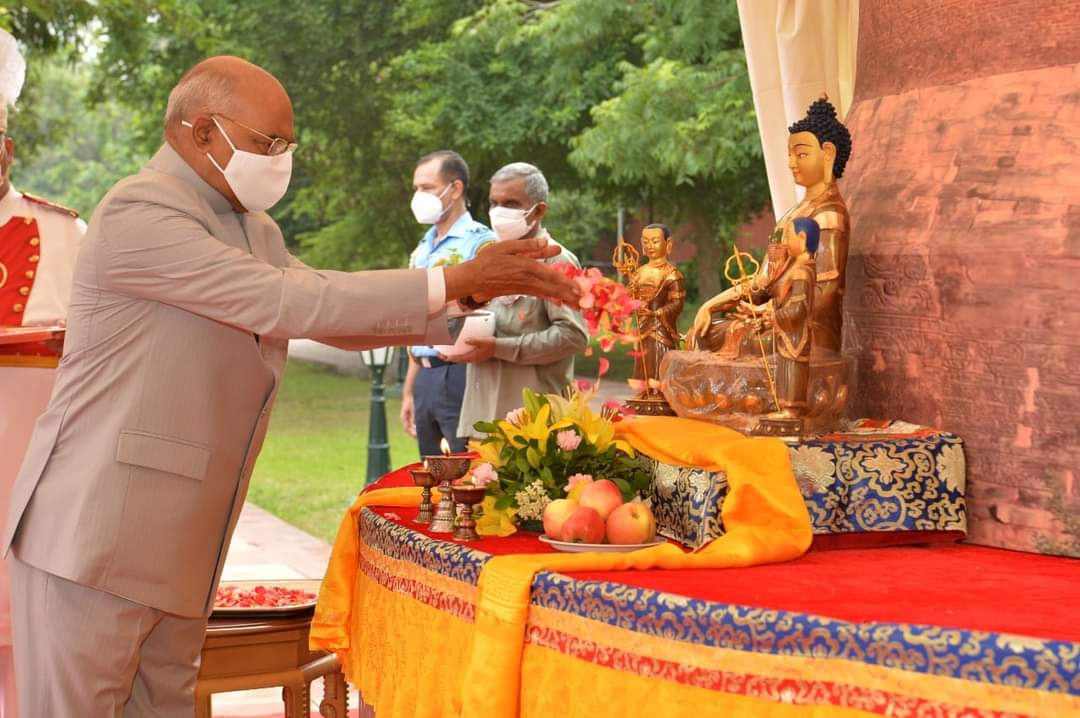Highlighting its enduring presence among the Indian Buddhist community since 2011, on 24 July the International Buddhist Confederation (IBC) hosted this year’s Asadha Poornima over YouTube and Facebook Live, bringing together Buddhist leaders and supporters of the Buddhist tradition from around the world. Asadha Poornima is otherwise known as Dharma Chakra Day, and commemorates the first turning of the Wheel of Dharma by the Buddha, when he gave his first sermon (Dharma Chakra Parvattana) to the five ascetics in the Deer Park at Sarnath, India.
Despite the ongoing battle against COVID, which has particularly ravaged the Global South, the appearance of both prime minister Narendra Modi and president Ram Nath Kovind in this day-long program was a signal that India’s government remains invested, at least morally, in the success of its program of Buddhist outreach, which has been ongoing since the very first Samvad conference in 2015 between IBC, the Vivekananda Foundation, and the Tokyo Foundation.
As part of the program, speeches and reflections were given by leaders like Bhikkhu Bodhi of Chuang Yen Monastery and Ven. Tathaloka of Dhammadharini Monastery in the US, HH Somdet Phra Ariyavamsagatanana the supreme patriarch of Thailand, and the deputy sangharaja of the National Vietnam Buddhist Sangha, HH Thich Tri Quang. President Kovind was escorted by senior ministers, among them minister of culture Gangapuram Kishan Reddy and ministers of state Meenakashi Lekhi and Arjun Ram Meghwal, to plant a sapling of the Bodhi tree in the grounds of the Rashtrapati Bhawan, the presidential palace. The manglagatha (victory gatha) was performed by monks present at the Rashtrapati Bhawan, led by IBC leader Ven. Dr. Dhammapiya. There was a video address by Modi, and a written statement from HH the Dalai Lama that was read out to online attendees.

In recent years, the Modi government has made a priority of elevating Buddhist festivals to days of national importance. Vesak, while already acknowledged by past administrations as core to Indian national and religious identity, Modi has inserted himself into festivals celebrated more exclusively by Buddhists, such as Asadha Poornima. He invokes the Buddha’s teachings on these occasions, as he did on the 24th when he said: “In times of tragedy, the world has felt this power of love and harmony. As this knowledge of Buddha, this experience of humanity gets enriched, the world will touch new heights of success and prosperity.” Repeating a Samvad theme that has been almost like a leitmotif over the years, he noted: “Harmony between our mind, speech, and resolve and between our action and effort can guide us away from pain and towards happiness. This inspires us to work for general welfare during good times and gives us strength to face difficult times. Lord Buddha gave us an eight-fold path to achieve this harmony.”
The Modi administration, working with organizations like IBC, has over the years explored how it might effectively capture the essence of an exportable Indian Buddhism capable of functioning as a vehicle of soft diplomacy. I remember in the early days of the Samvad initiatives and conferences how Buddhism was emphasized to be a movement from India, shaped by Indian thought and carried into the world by Indian Buddhists. This was balanced by the notion that Buddhism is not a cultural spiritual phenomenon; in other words, it is universal and exportable everywhere in a way Hinduism is not.

Despite the Hindu affiliations of Modi’s BJP (and such ties arguably take precedence over the government’s Buddhist relationships), there was an implicit acknowledgement by President Kovind in this year’s address that Buddhism’s universalism makes it a stronger vehicle of cultural diplomacy: “People belonging to other faiths, and even skeptics and atheists feel attracted to the teachings of the Buddha. This universal and eternal appeal of Buddhism is due to its logical, rational, and simple answers to the fundamental problems faced by human beings across time and place,” he said.
As India emerges from a very dark March and April this year, during which thousands of people died and over four hundred thousand were infected from a deadly second wave of COVID, Asadha Poornima has proven an ideal time for India to rally in a show of its traditional strengths: religious unity and the enduring presence of the Buddhist tradition within its borders.


